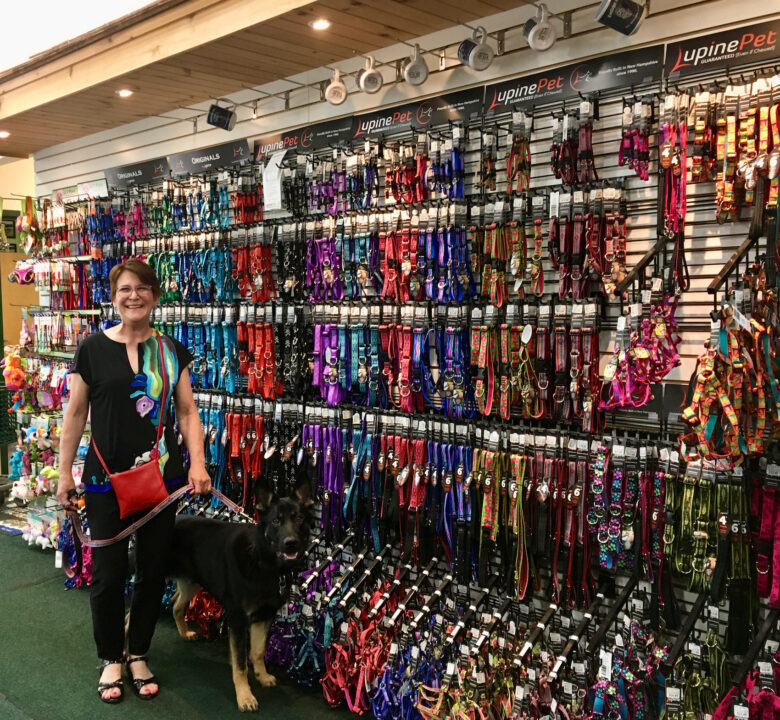
Based in Center Conway, in the heart of New Hampshire’s White Mountains, LupinePet hand makes exceptional and unique collars, leashes, and other gear for dogs and cats. Their difference is their colorful and fun designs.
Trying to decide which one will best suit your dog’s personality – and yours too, haha – can be tough!
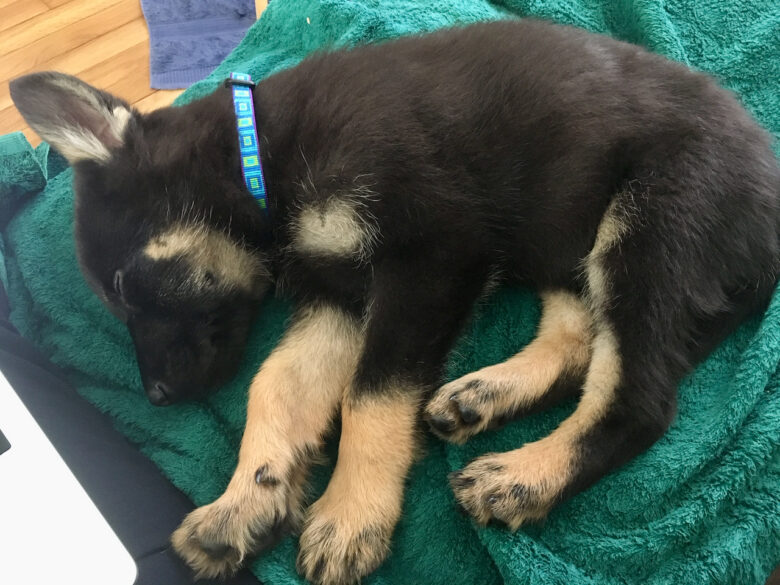
My first two Sheltie dogs wore LupinePet collars and now my German Shepherd Rocky does too.
Lucky me, he’s a growing boy, so I’ve had to buy a larger collar three times – and with each purchase, I’ve chosen a new design.
I love these collars – and the fact they’re made in my home state is icing on the cake.
So, I’m thrilled that Scott Badger, one of LupinePet’s co-founders, shared the company’s start-up story.
But first, a brief side-trip about webbing manufacturing — specifically patterned webbing.
Unlikely mashup: A webbing innovation from Teva Sandals and a video store
Prior to the 1980s, webbing came in solid colors, such as red, black, blue, white, or black.
Manufactured on looms using polypropylene, nylon, or cotton, webbing comes in various widths and can be tubular or flat.
According to Teva company lore, in 1984, a resourceful Grand Canyon river guide strapped two Velcro® watchbands to his flip flops to keep them from floating downriver. . . and thus the Teva sandal was born. (Source)
Later versions of the sport sandal featured colorful patterned webbing straps. Instead of being printed, the designs were woven into the straps, which helped the colors hold up to rigorous use, water, salt, sun, etc.
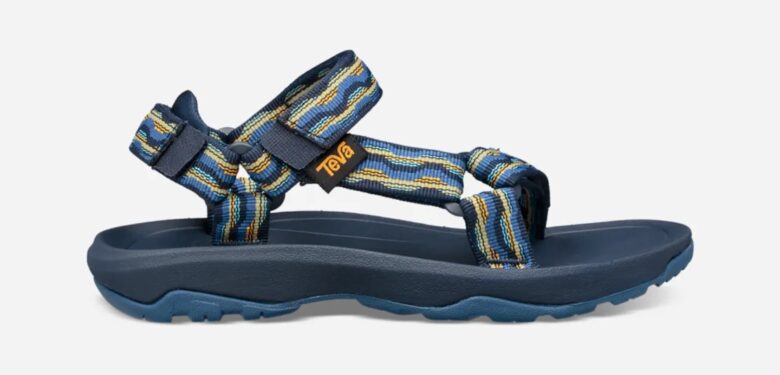
Patterned webbing was very new, but the process used to create the patterns was not.
Known as “jacquard,” the term refers to the method of creating raised motifs in fabric, as well as the type of loom used. The jacquard loom, invented in 1804 by Joseph-Marie Jacquard, a French weaver and merchant, revolutionized how patterned cloth could be woven.
Instead of being added later via printing or applique, patterns are woven into the fabric or textile. Jacquard textiles are also less likely to fade over time compared to printed cotton materials.
According to a piece by the Science + History Museum (source), “the new loom made it possible for complex and detailed patterns to be manufactured by unskilled workers in a fraction of the time it took a master weaver and his assistant working manually.
“The spread of Jacquard’s invention caused the cost of fashionable, highly sought-after patterned cloth to plummet. It could now be mass produced, becoming affordable to a wide market of consumers, not only the wealthiest in society.”
It was this weaving process that created the patterned webbing straps for the now iconic Teva sport sandals.
The patterned webbing also made its way into hiking and climbing gear, including high-end gear made by Wild Things, a New Hampshire-based company owned by Marie Meunier and John Bouchard, both accomplished mountaineers who created their own line of lightweight, superior gear out of dissatisfaction with available products.
(Today, the company makes bespoke, made-to-order kits for the U.S. military in Gotham, NH. Source)
Marie was also aunt to Valerie Jensen, who would travel to the States from France to spend her summers working with Marie at Wild Things. She and Marie were also patrons of a video store located near where they lived in the NH White Mountains – which is how they met Scott Badger and Dave Jensen (Valerie’s future husband).
Before LupinePet – video stores and a dog
After college, Scott and his buddy Dave acquired a video store in Conway, NH and subsequently opened a second one in Intervale, NH. Scott also had a wolf dog, Blaze.
By the late 1980s, the video rental business was changing dramatically due to the onset of digital, cable, and non-video store outlets, such as big box and grocery stores.
“At the same time our video store business was jumping off a cliff, we had this dog collar that Valerie had made for Blaze,” says Scott. The collar was pink and blue checkerboard with a purple border and a climbing harness buckle.
“Everyone who saw it would ask, ‘Where did you get it?’ We could see the end coming with our stores, so we had a few dog collar samples made up. They sold right off our counter, so we said, ‘Let’s give it a shot.’”
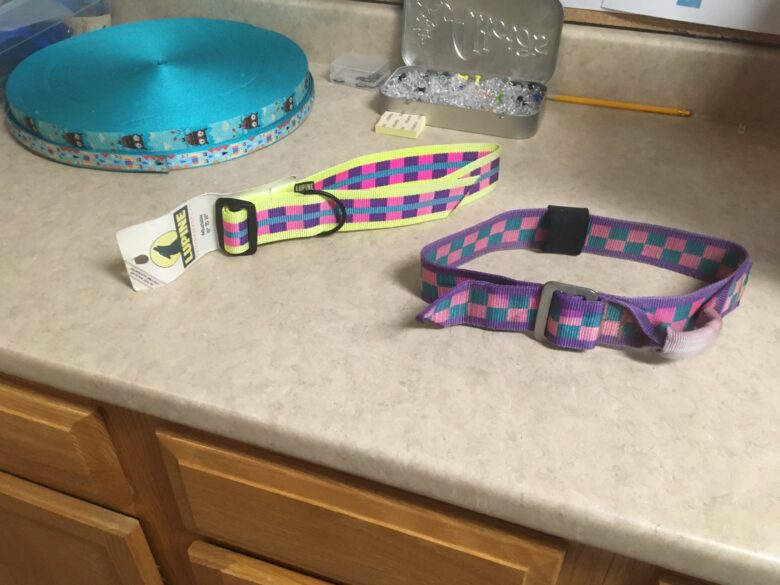
Scott, Dave, and Valerie joined forces and founded LupinePet in 1991 – with Valerie and Dave later getting married.
Sea change in the pet industry
The three co-founders attended their first trade show in 1991 – and as Scott relates, their colorful patterned collars were like nothing else found at the show. The attention was “incredible,” but their wholesale prices were much higher than their competitors’ products.
And too, some people couldn’t get around how different the collars were. Collars were either made from webbing and came in red, black, blue, or white, or leather. If you wanted fancy, you could get leather with rhinestones.
Like the video industry, the pet industry was also undergoing a huge change: “It was a good ten years behind what the pet owner was looking for versus what was being offered,” says Scott.
“Pet owners think of pets as extensions of themselves,” he says. “We had to convince customers that consumers were looking for high-end pet products and wouldn’t hesitate to buy a $10 versus a $5 collar. Store owners could sell just as many collars at the higher price and consumers would be happy about it.”
Attending the trade show helped the LupinePet trio realize they needed focus on independent retailers versus large chain stores or distributors. The independents were closer to the ground in terms of changing pet ownership dynamics – and store owners provided direct feedback to what worked and what didn’t.
What did work: Manufacturing the collars and leashes stateside.
Supply chain snafus
LupinePet originally sourced their patterned webbing from the same company that Teva did – from a manufacturer in France. The founders wanted a domestic supplier due to shipping costs and lead times – “plus you had the little challenge of them taking all of August off, which meant we had to buy twice as much material in July,” comments Scott.
After doing extensive research for domestic suppliers, the trio learned they couldn’t find anyone with the quality standards they wanted.
Over time, the quality of the French material began to decline due to rising costs and competition, so the decision was made to use suppliers from Taiwan and Hong Kong. These suppliers, says Scott, meet the company’s high expectations for quality and service.
The company also decided to manage the manufacturing themselves, as they couldn’t find a US-based cut and sew contractor who could or wanted to meet LupinePet’s high standards.
Today, the company factory in Central Conway, NH employs over 60 people. All collars and leashes are designed and constructed on-site. Scott likens LupinePet to Toyota. The company uses a Kanban process and continually improves its process.
The “Even if Chewed” Guarantee
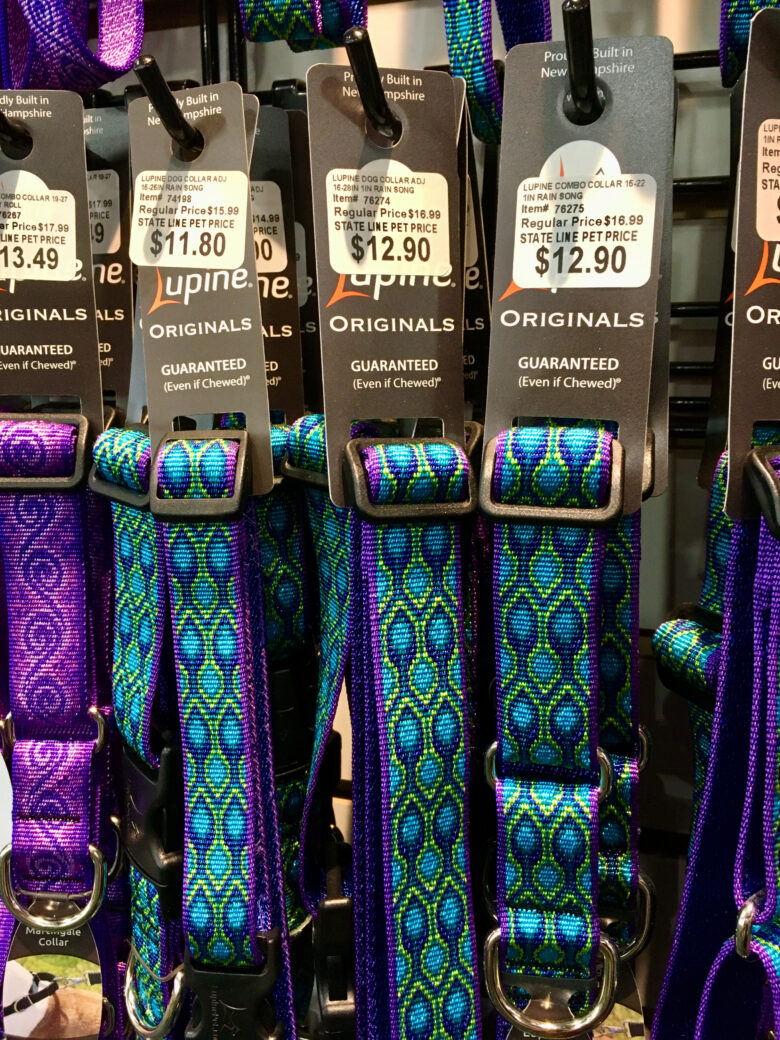
Owning the video stores made Scott and Dave customer-centric; they learned that giving up short-term income by not charging late fees often led to more loyal customers and longer-term income.
They also took notice of other consumer companies offering liberal return policies: for example, L.L. Bean, Lands’ End, and Nordstrom.
For LupinePet, the “Even if Chewed” Guarantee is pretty simple: If your dog chews through its leash or collar, you can return it for a replacement.
Scott reports that in the early years, this return constituted three percent of RTV products – and was a significant expense. The guarantee, however, generated tremendous word-of-mouth.
“When customers called us directly to return a collar, you could tell they were ready to do battle. They didn’t expect us to say, ‘Ok, here’s our address – mail it to us and we’ll replace it.’ It wasn’t the product that made a lasting impression – it was the lack of fine print. We’d get letters weekly from people, after receiving their replacement collar, saying they would tell everyone they knew.”
Made in NH, worn by pets around the world
Today, the company sells its products through independent retailers in all 50 states and more than a dozen countries – as well as on its direct-to-consumer website. Future plans include adding custom embroidery – e.g. a dog’s name and phone number to a collar. Every item is made by hand, using highest-quality components.
You can purchase dog and cat collars, leashes, and other pet gear by visiting the LupinePet online store at: www.lupinepet.com/store/
Get the Keep It Made USA newsletter.
Twice monthly; zero spam.
——
Huge shout-out to State Line Pet Supply, an independent, family-owned store in Plaistow, NH. As you can see in the header photo, they carry a huge supply of LupinePet collars. Stacey, a long-time employee, took the photo and has also watched Rocky grow up!
Full Disclosure
I’m not paid nor asked to write about products or the companies that make them. All links in this piece are FREE — meaning, they’re not sponsored or paid for.
My mission is to keep manufacturing jobs stateside and this blog is my way of giving back. We like to think a “small” choice, such as purchasing something made in the US by American workers, won’t make a difference. It does.
